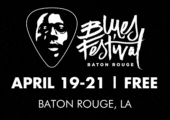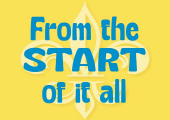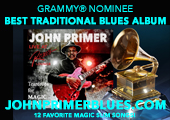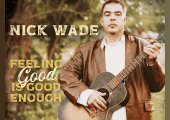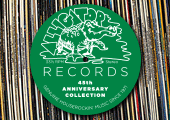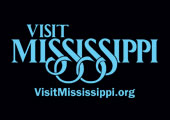CHRISTONE “KINGFISH” INGRAM
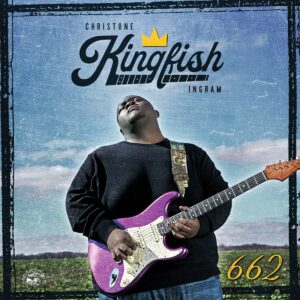 662
662
Alligator – ALCD-5005
The development and maturation of 22-year-old Clarksdale native Christone “Kingfish” Ingram over the past few years has been nothing short of astounding. He has already learned to temper his youthful exuberance with taste, maturity, and focus well beyond his years. Even at his most hard-driving, he crafts solos that reflect a mind as quick as his fingers—each note sounds right, each string-bend and grunge-flecked wail appropriate in its place. Yet it all sounds utterly unselfconscious: like the legendary speed-rapping poets of the Beat era, Ingram creates “spontaneous bop prosody” with nearly dizzying facility—only he uses notes, not words, to limn his imagery and message.
Ingram writes or co-writes most of his material; on several of the outings here, he relates his experiences as a young, Delta-born blues phenom consumed with the desire not just to play, but to represent the blues as a living cultural legacy (“Blues is my history, and I’m not gonna lie”). When he addresses more traditional blues themes like erotic attraction and heartbreak (still apparently derived from personal experience, as in Long Distance Woman, where a road-weary musician ruminates on the trials and pitfalls of sustaining a long-distance relationship), he again sounds wizened—and wounded—beyond his years.
Sonically, this set is pretty heavy on Alligator’s trademark “houserocking” sound, crafted to inspire you to get your boogie and your drink on. As a singer, Ingram won’t make the ghost of his idol B.B. King lose any rest, but his vocal delivery is fraught with emotion, and its unadorned, unnuanced directness is appropriate for the themes he addresses in his lyrics. At times he tackles more weighty concerns—Another Life Goes By laments the toll taken by poverty, violence, and hopelessness on the lives of young Black men in America; You’re Already Gone, a pop folk ballad, is a meditation on love, loss, and missed communication worthy of a master storyteller like Latimore. The swaying, gospel tinged That’s All It Takes finds Ingram singing in as soulful and resonant a voice as he’s ever summoned, and again he shows himself to be a lyric craftsman of depth and substance.
The overriding theme of this set, though, is Ingram’s deep-running love for his Mississippi roots and his own mission as a carrier of that state’s living blues legacy. As he said during a recent press event with Bobby Rush at the B.B. King Museum in Indianola: “I’m privileged to be one of the ones who God has blessed, and chose me to go and represent our state well, and show that we all know the blues.”
—David Whiteis
MUDDY WATERS AND HIS BAND
 Muddy Waters and His Band Live in Los Angeles 1954
Muddy Waters and His Band Live in Los Angeles 1954
GNP Crescendo – GNP 9057
Forty-one-year-old Muddy Waters was at the zenith of his initial popularity in the fall of 1954. His records were on jukeboxes and on R&B radio. In August, he’d appeared at Ebbets Field in New York alongside such acts as Fats Domino to the Count Basie Orchestra in Alan Freed’s Moondog Jubilee of Stars Under the Stars. On September 25, he opened a rhythm and blues revue at the Shrine Auditorium in Los Angeles, likely his first West Coast appearance. The concert presenter, Los Angeles deejay Gene Norman, recorded this performance. Forty-some years later, Norman’s son Neil discovered the tape in his dad’s garage. Now, a quarter century on, the earliest known “live” recording of the Muddy Waters band is finally available on a limited-edition vinyl EP.
There are just five songs, but three were then-new Willie Dixon compositions destined to become much-covered blues classics. Two of them, Hoochie Coochie Man and I Just Want to Make Love to You, were cut earlier in 1954 and had already become hits. Waters milks Make Love for all it’s worth, even humorously referencing Hank Ballard & the Midnighters’ Work with Me Annie, another sexy R&B hit that year. But the song that seemed to get both Waters and his audience most excited was I’m Ready, recorded September 1 and not released till October. Could Norman have been spinning an advance copy on air at KFWB to promote Waters’ first L.A. appearance? Bookending the Dixon songs are the opener, Big Joe Williams’ Baby Please Don’t Go (Waters recorded it in May 1953) and the closing Oh Yeah, the B-side of Make Love and cut at the same April ’54 session.
Waters’ band consisted of Jimmy Rogers (guitar), Little George, a.k.a. George “Harmonica” Smith (harmonica), Otis Spann (piano), and Elgin Evans (drums). The sound quality is good if imperfectly balanced: the guitar is muffled, and Rogers is possibly the sole guitarist. Waters’ vocals are definitely upfront, and Spann’s brilliant playing comes across strong. “Little George” shines in spots reserved on record for Little Walter (Smith does not appear again in the Waters discography till 1966).
Any newly discovered live recording of this vintage by an artist of Waters’ stature would be noteworthy. What makes this one especially so is the timing and context: Waters was at his popular peak among Black audiences, thanks in part to then-new Willie Dixon songs that brought fresh touches of both down-home drama and uptown sophistication to the blues. Waters’ next known live recordings—with Chris Barber’s Jazz Band in England in 1958—are of an entirely other order. This slim window into Waters’ 1954 world calls to mind Spencer Tracy’s observation about Katharine Hepburn’s character in the film Pat and Mike: “Not much meat on her, but what there is is ‘cherce.’”
—Mark Humphrey
MR. SIPP
 Sippnotized
Sippnotized
Malaco Music Group – MCD 7554
Mr. Sipp is the nom de blues of Castro Coleman. The 2014 International Blues Challenge winner is also known as “The Missisippi Blues Child.” Sippnotized is the fourth long-player from the acclaimed gospel blues guitarist-singer.
Across the new album’s ten songs, Sipp synthesizes his influences into a cohesive whole. Gonna Be Alright wouldn’t be out of place on any of Sly and the Family Stone’s classic-era albums, but Sipp manages the feat of engaging in pastiche while never losing his own musical personality in the process.
The title track explores fun territory; Sipp’s spoken intro suggests Parliament-Funkadelic, and when he starts singing, he sounds a bit like early ’70s Stevie Wonder. The song’s understated wah-wah guitar and horn section make Sippnotized sound like classic slab of funky soul.
Free is an outlier; with its dated guitar and synthesizer textures (and funk-popping bass figures), it sounds like an ’80s funk slow jam. It’s effective at capturing that particular vibe, though it remains an open question whether there’s much demand for such a musical excursion. The gospel vocal arrangement that dominates the song’s second half does redeem things, but it still feels underwritten and derivative.
Sipp gets back on track with F 2020. The letter stands for exactly what you think it does; the tune is a survey of the challenges faced in the first year of the pandemic. But while Sipp doesn’t shy away from enumerating the negatives (“That was a terrible year,” he sings), his outlook for the future is hopeful. Beyond the lyrics, the tune gives Sipp room to stretch out and deliver an extended guitar solo.
The Mississippi Step reaches back to music’s past for its theme: creating a new dance. Electronic hand claps and some engaging synthesizer splashes create a musical throwback that’s undeniably fun. Running his guitar through a phase shifter allows Sipp to give Can You Feel Me Now a psychedelic blues character. The tune’s deep-groove melody is among the best on the record. And even though Sipp is in preaching mode, his good-natured approach isn’t likely to alienate less spiritually inclined listeners.
If only to underscore Sipp’s stylistic range, Fallen Loved Ones would be a success. A late-night blues weeper, it features some lean, jazzy guitar work and deeply soulful, heartfelt vocals. And responding to what he characterizes as his fans’ desire for some “lowdown blues” with Dirty Mississippi Blues he turns in a I-IV-V number that delivers on that promise. And right before he tears into a stinging solo, he name-checks his previous album, 2017’s Living Blues Award–winner Knock a Hole in It.
Mr. Sipp unplugs for the set closer, The One. After an extended spoken introduction, Sipp delivers an autobiographical lyric. He expresses his desire to bring smiles and joy to his listeners; more than anything, The One sounds and feels like a love song. But it’s one directed not to an individual, but to those who some might call fans. Yet, as Mr. Sipp explains in the song, he thinks of them as family.
—Bill Kopp
ERIC BIBB
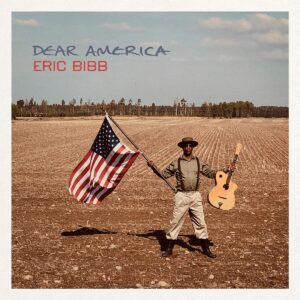 Dear America
Dear America
Provogue – PRD76472
Born, raised, and immersed in the musical culture of New York City, these days guitarist-songwriter Eric Bibb is better described as a world citizen. He moved to Europe at the end of the 1960s, and has variously made Paris, Stockholm, and London his home since then. But his innate American-ness remains a defining characteristic of his music. The folk influence—and social conscience—of Pete Seeger, Bob Dylan, and Paul Robeson (Bibb’s godfather)—have all found a place in Bibb’s music.
And his globe-encompassing worldview has informed his music from the very start; his second release, 1977’s Rainbow People opens with a sweet, folky tune, Catalina Estimada, that draws as much from the James Taylor school of songwriting and arrangement as it does from what would come to be known as world music.
Jazz has always been in the mix for Bibb, too; the Modern Jazz Quartet’s John Lewis was his uncle. Jazz and other styles sometimes shown up in Bibb’s blues in subtle ways. Yet, on Dear America’s opening track, Whole Lotta Lovin’, Bibb goes so far as to name-check a few of his influences: jazz, blues, calypso, rock ’n’ roll, and gospel. The song’s spare arrangement, which features Bibb’s gentle acoustic picking, is supported only by jazz legend Ron Carter on upright bass plus a few splashes of well-placed vocal harmonies. Nothing more is needed.
Vocalist Shaneeka Simon guests on Born of a Woman, trading vocalist licks with Bibb; the tune also features some evocative electric and acoustic slide guitar work. The song starts with an arrangement nearly as spare as the first cut, but by its end it resembles a sort of rocking, electric field holler.
Guest turns are a prominent feature of Dear America. Whole World’s Got the Blues features Eric Gales; his snaky leads flit in and out of the mix, the understated song seethes and simmers. The guest-less Dear America delivers on the social commentary suggested in its title. It, too, bears the influence of field hollers, with percussive foot stomps and handclaps among its most prominent components.
Ron Carter returns for perhaps the most topical song on an album dominated by weighty subject matter—Emmett Till: Emmett’s Ghost is a contemplative, melancholy number with more beautiful picking; though it features some extremely subtle string work placed deep in the mix, it’s very much a piece with Whole Lotta Lovin’.
An impassioned message song, White & Black features a full-band arrangement and a stirring, wordless vocal chorus. Billy Branch helps out on the first of a two-part number, Talkin’ ’Bout a Train. Bibb’s focus on topical lyrics takes a momentary back seat here. The funky and hypnotic second part of the track sounds wholly unlike anything else on Dear America, and suggests an interesting direction Bibb might do well to explore in the future.
And the soulful, breezy Love’s Kingdom (featuring Tommy Sims and Glen Scott) places Bibb’s many talents firmly into the pop idiom. The album concludes with a sweet love song duet featuring Bibb and Lisa Mills, with a delicate arrangement that includes piano and cello. A model of strength through subtlety, Dear America rewards repeated listening.
—Bill Kopp
RODD BLAND AND THE MEMBERS ONLY BAND
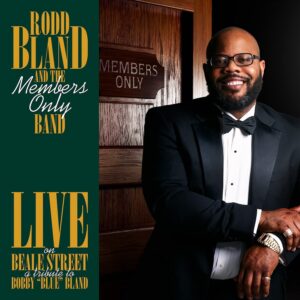 Live on Beale Street—A Tribute to Bobby “Blue” Bland
Live on Beale Street—A Tribute to Bobby “Blue” Bland
Nola Blue – NB 016
To learn more about this album’s backstory, see the interview with bandleader/drummer Rodd Bland in LB #273. For now, suffice it to say that this was a labor of love for Bland, son of the late blues and soul master Bobby “Blue” Bland. He pays tribute to his father with six offerings from the man’s catalog—most of which will be familiar to longtime fans, even if not all of them reached the charts (the least widely known is probably the opener, Up and Down World, originally released in 1973).
Recorded live at B.B. King’s on Beale Street in May of 2019, this set captures the looseness and exuberance of a live gig, toughened by the discipline, emotional intensity, and musical excellence that characterized the Bobby Bland sound. Vocalists Chris Stephenson (who also plays keyboards), Jerome Chism, and Ashton Riker summon the master’s spirit with winning verisimilitude; the horn charts, based closely on (but not slavishly imitative of) the originals, are both brawny and emotionally evocative; the solos, as they were during Bobby “Blue’s” heyday, are crisp and concise, yet deft and imbued with improvisational fire. The same can be said, for the most part, about the vocals: Bobby Bland’s style was characterized by his gift for conveying deep feeling through understatement; the man could win—or break—more hearts with a moan, a sigh, or a brief “squall” than a less gifted singer might with an entire night’s worth of down-on-my-knees theatrics, and that gift is in full flower here.
That’s not to say there’s no intensity on offer. Bobby Bland sang I Wouldn’t Treat a Dog (the Way You Treated Me) like a man suspended between the twin torments of fury and heartbreak, and Jerome Chism perfectly captures that feeling of soul-on-a-torture-rack anguish; the resigned, blues-rich irony of Sittin’ on a Poor Man’s Throne represents soul blues at its deepest and most emotionally nuanced, and keyboardist/vocalist Stephenson maintains the song’s emotional high-wire balance with deft sureness. Through it all, Rodd Bland’s drumming evokes his musical ancestors and mentors—Jabo Starks, Harold “Peanie” Portier, George Weaver, Tony “TC” Coleman—with unbridled fervor.
As Chicago-based jazz vocalist Dee Alexander has said, when beloved artists make the transition from being elders to being ancestors, they don’t really depart—their spirits live on in the gifts they’ve left behind, and as long as we continue to speak their names, they also live within us. Thanks to Rodd Bland and his Members Only Band, the spirit of his legendary father continues to live, and to sing, through the music presented here.
—David Whiteis
TITO JACKSON
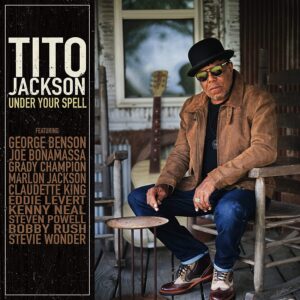 Under Your Spell
Under Your Spell
Gulf Coast Records / Hillside Global – GCRX9033
Back in the late 1960s when Tito Jackson and his four brothers were cranking out pop/soul hit after hit for the Motown label, it would have been hard to predict that over a half century later he would wind up recasting himself as a bluesman. Motown didn’t let him play guitar on those hits, but Jackson began flashing his chops on records when the brothers switched to the CBS label in the mid-1970s. He followed quite a trajectory, and prior to the COVID-19 lockdown, Jackson had been out there on the road fronting the B.B. King Blues Band. Those are some mighty big blues shoes to fill, and it’s impossible for anyone to ever make up for the loss of the King of the Blues.
Under Your Spell, however, does show that Jackson has some formidable chops both as a singer and guitarist on a program that is evenly divided between funky R&B and contemporary blues. The opening track, Wheels Keep Turning, echoes Stevie Wonder’s Master Blaster, and, in fact, Wonder joins in on harmonica on Love One Another, a grinding funk number that also features contributions from brother Marlon Jackson, Bobby Rush, and Kenny Neal. The title track stays in the funk mode and features a sizzling guitar solo from guest Joe Bonamassa. The more overtly blues-oriented material includes a Bobby Bland–inspired Big Leg Woman, featuring bass and rhythm guitar work from Neal and a crackling guitar solo from Jackson. That Kind of Love is a rocking shuffle with harmonica work by Grady Champion. The track that will garner the most attention is likely a funkified remake of Rock Me Baby that features veterans from King’s band, his daughter Claudette King sharing lead vocals with Jackson, and George Benson on lead guitar. Again, it’s never going to supplant King but might attract some interest in blues from a contemporary audience. Jackson’s stature in the music business certainly enables him to bring in these guest artists, and that is in evidence as composers Kenny Gamble and Leon Huff contribute a new composition All in the Family Blues, featuring a Muddy Waters–flavored riff as its underpinning. It also boasts lead vocals from Eddie Levert from the O’Jays with Kenny Neal and Darnell Neal playing rhythm guitar and bass respectively. The track that truly jumps out, however, is a collaboration with Steven “Ice Buck” Powell, I Got Caught (Loving in a Dream), a Z.Z. Hill–like southern soul number with an infectious guitar riff and mellow rap interlude that is bound to get folks up from their seats and on to the dance floor.
—Robert H. Cataliotti
JOHNNY TUCKER FEATURING KID RAMOS AND THE ALLSTARS
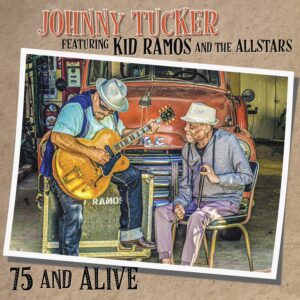 75 and Alive
75 and Alive
Blue Heart Records & HighJohn Records – No #
California blues legend Johnny Tucker (featured in LB #255) returns for his third release on HighJohn accompanied by an all-star cast of musicians including iconic guitarist Ramos, pianist Carl Sonny Leyland, bassist John Bazz, drummer Jason Lozano, saxophonist Ron Dziubla, and harp player Bob Corritore. Tucker and the band recorded the album live on his 75th birthday, October 17, 2020, and the album is a rollicking celebration.
Corritore’s wailing harp plays call-and-response with Tucker’s soaring vocals on the swaggering, propulsive Can’t You See, while Leyland lays down soulful, Fat Domino–like piano rolls and trills on the shimmering, slow walking-to-New-Orleans-inflected If You Ever Love Me. Ramos’ down and dirty guitar unfurls on Snowplow, answering Dziubla’s wailing sax; Ramos’ blistering guitar lines wrap around and weave over and under Leyland’s jaunty piano and Dziubla’s screaming sax on this romping instrumental. Leyland’s barrelhouse piano introduces the scampering, skittering What’s on My Mind, which barrels over the grooves like a freight train, while Ramos’ screaming slide plays call-and-response with Corritore’s punched up harp on the raucous Dance Like I Should. The album opens with crisp leads and country blues fervor on All Night Long, All Night Wrong, and it closes with the Memphis soul stew Gotta Do It One Time, fueled by funked up horns, juke joint piano, and crunchy guitars.
75 and Alive opens the door to a party, inviting us to the dance with a range of musical styles that give Tucker and Ramos and the rest of the musicians room to unfold their chops in shining fashion. We’re fortunate that Tucker and crew share their party with us on this album.
—Henry L. Carrigan Jr.
RHIANNON GIDDENS WITH FRANCESCO TURRISI
 They’re Calling Me Home
They’re Calling Me Home
Nonesuch – 654203
Rhiannon Giddens and Francesco Turrisi’s They’re Calling Me Home emerges from the tremendous upheaval that the world has experienced due to the COVID-19 pandemic. It’s an album that could only have been made under those circumstances, and it’s an album that provides musical succor to a world that still hasn’t recovered from the devastation. The concept of home is central to this music—people were forced to stay at home due to the lockdown; people died and were figuratively “called home” by the virus; and for Giddens and Turrisi, an American and an Italian, there was the call of home for two expatriates living in Ireland. As Giddens told NPR: “But there’s just these pieces of our birth homes that, musically speaking, really came out in comforting ourselves through music.” And, the music that these two created while on lockdown is an incredibly comforting experience for listeners.
First of all, there’s Giddens voice. It’s simply stunning—crystal clear, resonant, and strong. The stylistic range of music that she delivers is just as impressive, from Claudio Monteverdi’s 17th-century aria Si dolce è’l tormento to traditional American folk songs like O Death and Waterbound. The musical soundscapes they shape to frame that voice are spare and highly effective, with Giddens playing banjo and viola and Turrisi playing various hand drums, banjo, and accordion. They are joined on select tracks by Congolese nylon-stringed guitarist Niwei Tsumbu or Irishman Emer Mayock on flute or uilleann pipes. Giddens doesn’t need much to put these tunes over, but the backings they have crafted do everything to accentuate her voice. The drone of an octave viola and an accordion are all she needs as her voice soars on Alice Gerrard’s title track. Turrisi’s lightly plucked cello banjo provides a perfect underpinning for the way Giddens caresses the words to Si dolce è’l tormento. The percolating interaction between Giddens’ viola, Turrisi’s frame drum, and Tsumbu’s guitar uplift Giddens’ multi-tracked vocals on the original Avalon. With an arrangement inspired by traditional African American banjo master Joe Thompson, Turrisi and Giddens create a lilting, ragtime-like underpinning with a minstrel banjo, various hand drums, accordion, and a chitarra on the spiritual I Shall Not Be Moved. Giddens’ voice riding on her viola, Turrisi’s cello banjo and accordion, and Mayock’s Irish flute bring the musical traditions of their adopted home into the mix. Perhaps the standout track is the American folk tune O Death (often associated with Ralph Stanley). With just Turrisi’s pulsing frame drum for support, Giddens’ multi-tracked vocals soar with deep blues feeling and a wailing gospel intensity. They close their musical journey home with a unique version of Amazing Grace that rides on Turrisi’s resounding frame drum pulse as Giddens eschews words, humming as Maycock’s uilleann pipes weave in and out of the classic melody. Rhiannon Giddens and Francesco Turrisi have drawn upon trying times to craft timeless music on They’re Calling Me Home.
—Robert H. Cataliotti
TEDESCHI TRUCKS BAND
 Layla Revisited (Live at Lockn’)
Layla Revisited (Live at Lockn’)
Fantasy Records – 01224
Derek and the Dominos released Layla and Other Assorted Love Songs on November 9, 1970, on the same day, as it turns out, that Susan Tedeschi was born. Derek Trucks’ parents loved the album so much that they named their firstborn son, Derek, after it, and his long musical legacy includes a 15-year stint with the Allman Brothers Band, where he often had the chance to tour with Eric Clapton. So, for the Tedeschi Trucks Band to revisit one of rock’s most iconic albums seemed like a match made in heaven. On August 24, 2019, fans at the LOCKN’ Festival in Arrington, Virginia, had the chance to hear firsthand the band’s live performance of the entire album. Now we have the chance either to relive the poignant beauty of Derek and the Dominos album or to hear it lovingly—and, for the most part, faithfully—rendered by one of the best blues rock bands playing today.
Derek and the Dominos’ Layla and Other Assorted Love Songs carried listeners into a sonic stratosphere as they floated along Clapton’s crystalline leads and Duane Allman’s never-waste-a-note slide guitar. From the very first song, I Looked Away, we can feel the spirits of the musicians flowing through speakers, as each song on the album builds layer by layer an emotional landscape that we respond to palpably.
To their credit, the Tedeschi Trucks Band lifts us up from that very first song and never lets us down. Trey Anastasio joins them on all but the final track, an intimate studio version of the sublime and moving Thorn Tree in the Garden, and he provides the perfect companion on this journey with his fiery and rich guitar licks. Longtime fans of the original album will be listening for certain notes that are absent on the Tedeschi Trucks Band’s versions, but the direction the band takes the song only amplifies its beauty or pain or joy. TTB’s version of Bell Bottom Blues conveys the mournful mood of the original, reproducing those pure lead notes that pierce our hearts on the instrumental bridge. An extended jam opens Keep on Growing, preparing the ground for the song’s emotional groundswell while the original charges right into the fray. TTB’s version of Why Does Love Got to Be So Sad burns with the fiery emotion of the original and the leads on the instrumental bridge mimic those of the original almost note-for-note (and not in an overly imitative way), and TTB’s Tell the Truth rocks with a blues power that won’t let us go. The title track of the original is so familiar now as to be almost tiresome, and it’s not the best song on the album anyway, but TTB preserves the heart-wrenching power of the original with its classic opening and repetitive riff and its closing coda.
There’s always a risk in covering an album as classic as Layla and Other Assorted Love Songs, of course, since purists will find notes missing or an introduction bungled and say that the new version can never live up to the original. However, TTB has been faithful enough to the original to innovate within it, and their version will, in the best of all possible worlds, lead a new generation to Derek and the Dominos’ original.
—Henry L. Carrigan Jr.
GERALD MCCLENDON
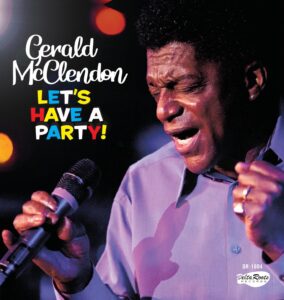 Let’s Have a Party!
Let’s Have a Party!
Delta Roots Records – DR-1004
Some vocalists simply have a way of cutting through the BS right to the guts of any lyric. Chicago-based Gerald McClendon is just such a singer, and on Let’s Have a Party!, “The Soul Keeper” brings bone-deep humanity to 12 cuts of classic-style, blues-tinged soul. McClendon once again joins forces with drummer Twist Turner, with whom he partnered on last year’s Can’t Nobody Stop Me Now. Just like on that acclaimed CD, Turner, in addition to manning the drum stool, produced, recorded, and mixed this record. Turner also wrote every tune on Let’s Have a Party!, and his throwback melodicism is on richly engaging display.
No matter the mood conjured by Turner’s compositions, McClendon’s voice is always right where his heart and soul need to be. He’s equally convincing as the tentative yet fervent suitor of Motown-redolent ballad Pretty Girl; as the boldly gritty Throw This Dog a Bone’s yearning hard-luck case; and as the fed-up cuckold of Pack Your Bags and Go, on which he calls out the “dirty drawers” on his lover’s floor: “I know they ain’t mine / ’Cause my drawers ain’t red.” McClendon brings editorial bluntness to the cautionary Ghetto Child, and, on the gospel-flavored Keep On Keepin’ On, he rings out with a tough-minded but earnest message of comfort and hope.
Turner surrounds McClendon with a bevy of top-class Chicago instrumentalists, many of whom were featured on Can’t Nobody Stop Me Now. Skinny Williams’ virile yet playful saxophone energizes a quartet of tracks, and Rico McFarland’s nasty guitar beautifully complements McClendon’s rough-edged evocation of bad troubles on If That Ain’t the Blues. The foot-tapping funk of Johnny B. Gayden’s bass carries the sleek groove of the title track, and Tony Llorens’ Fender Rhodes eases the venom of McFarland’s attack on the passion-fueled I Just Can’t Help Myself.
Turner’s production graces the album with a few modernistic flourishes, including Brian Williams’ keening keyboards on Funky Stuff and a subtle electronic distortion applied to McClendon’s vocals for both You Got to Be Strong and I Just Can’t Take Anymore. But even with these studio effects in play, McClendon’s belief in the power of the vintage soul sound cannot be contained. If you’re one to fret that they just don’t make ’em like they used to, Let’s Have a Party! will help you keep the faith, too.
—Matt R. Lohr





